SDG7: AFFORDABLE AND CLEAN ENERGY
SDG 7: Affordable and Clean Energy focuses on ensuring access to affordable, reliable, sustainable, and modern energy for all. In Saudi Arabia, this goal is pivotal due to the country's reliance on fossil fuels and its commitment to diversifying energy sources as part of Vision 2030. The government, led by the Ministry of Energy, is making strides to shift toward renewable energy sources and improve energy efficiency. Majmaah University also contributes to SDG 7 by promoting sustainable energy initiatives and research.
SDG 7 in KSA: Government and Ministry of Energy
Saudi Arabia is undergoing a significant energy transition, with key initiatives aimed at reducing its dependence on oil and shifting toward renewable energy. Here are the major steps taken by the government:
Vision 2030 and the Saudi Green Initiative:
Vision 2030 emphasizes reducing the Kingdom’s reliance on oil by expanding the energy mix to include renewables. The Saudi Green Initiative further aims to improve environmental sustainability, with ambitious targets to reduce carbon emissions and expand the use of clean energy.
Development of Renewable Energy Projects:
The Ministry of Energy is spearheading large-scale renewable energy projects. These include solar and wind energy plants, such as the Sakaka Solar Plant and Dumat Al-Jandal Wind Farm. By 2030, Saudi Arabia aims to generate 50% of its electricity from renewable sources, drastically reducing its carbon footprint.
Energy Efficiency Programs:
The government has implemented various energy efficiency programs to reduce energy consumption in the industrial, residential, and commercial sectors. The Saudi Energy Efficiency Program (SEEP) focuses on improving energy use, especially in high-consumption areas like air conditioning, lighting, and industrial processes.
NEOM and Red Sea Projects:
As part of its futuristic city projects, like NEOM, Saudi Arabia is focusing on fully sustainable energy systems. NEOM is designed to be powered entirely by renewable energy sources, such as solar and wind. These projects showcase the country's commitment to sustainable energy on a global scale.
Investment in Hydrogen and Clean Fuels:
Saudi Arabia is positioning itself as a leader in green hydrogen production, investing in hydrogen plants that use renewable energy for hydrogen extraction. The $5 billion hydrogen plant in NEOM is one of the largest projects in this area and aims to make Saudi Arabia a global hub for hydrogen fuel.
SDG 7 in Majmaah University
Majmaah University also supports SDG 7 through educational, operational, and research initiatives:
Sustainable Campus Initiatives:
Majmaah University has undertaken various measures to reduce energy consumption on campus. The university has implemented energy-saving technologies in lighting and air conditioning, which are major sources of energy use in the region. Solar panels have been installed in certain areas to test the potential for clean energy use on campus.
Research on Renewable Energy:
Majmaah University actively conducts research on renewable energy, particularly solar and wind power, which are highly viable in Saudi Arabia due to its climatic conditions. Researchers at the university collaborate with industry and government bodies to develop and test new technologies for harnessing renewable energy.
Educational Programs and Awareness:
The university integrates sustainable energy topics into its curriculum, preparing students to be part of the Kingdom’s renewable energy workforce. Additionally, workshops and seminars on energy efficiency and sustainability are regularly held to raise awareness among students and staff about the importance of clean energy.
Partnerships with Government and Industry:
Majmaah University collaborates with government entities and private companies on various projects related to renewable energy and energy efficiency. These partnerships enable the university to contribute to national efforts aimed at achieving SDG 7 and also provide students with practical experience in this critical area.
Both the Saudi government and Majmaah University are committed to achieving SDG 7. The government’s initiatives, including large-scale renewable energy projects, energy efficiency programs, and futuristic developments like NEOM, demonstrate a serious commitment to clean energy. Majmaah University complements these efforts by fostering research and education in renewable energy and implementing sustainable practices on campus. Together, these efforts contribute to Saudi Arabia’s transition to a sustainable energy future and the global effort to combat climate change.
ENERGY EFFICIENCY PROJECT LAUNCHED IN UNIVERSITY BUILDING
https://www.mu.edu.sa/en/news/general/207376
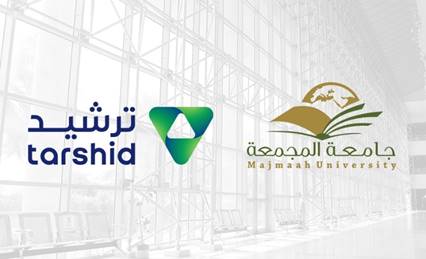
The General Administration of Projects, Operation and Maintenance (GAPOM), MU, launched in cooperation with the National Energy Efficiency Services Company (Tarsheed), the project of improving energy efficiency in the university’s buildings and facilities. The project aims rationalize the use of energy and reduce consumption in 20 buildings with a total area of 178,000. square metres, in accordance with the best international standards
It is worth noting that (BMS) system was launched earlier to facilitate the management of systems like air conditioning, lighting, fire alarms, and emergencies. GAPOM is overseeing the progress of work which will be soon a joint effort with Tarsheed to have a unified center.
WIND ENERGY CENTER PROJECT AT MU TO BE LAUNCHED
https://www.mu.edu.sa/en/news/general/204146
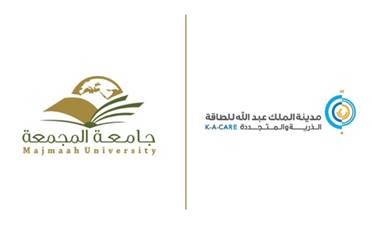
In line with the Memorandum of Understanding (MoU) signed Majmaah University (MU) and King Abdullah City for Atomic and Renewable Energy (KACARE), to establish a wind energy center at the main campus of MU in Majmaah. The monitoring tower was installed. This will be followed by the other stages of the project.
The advisor and supervisor of administrative, financial and technical affairs, Prof. Musallam Al-Dosari, said that this project is within the framework of the university's initiative to launch to support the United Nations Sustainable Development Goals 2030, which is led by the Observatory of Social Responsibility in partnership with the (CIFAL) Center.
Prof. Al-Dosari highlighted the importance of this national project which contributes to achieving the vision of the Kingdom of Saudi Arabia in the field of alternative energy. He thanked KACARE for their cooperating with the university, which undoubtedly will contribute to achieving the goals of both parties.
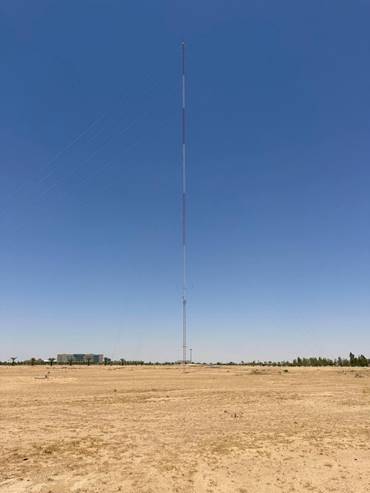
The General Administration of Strategic Planning launches the process of analyzing radiological and nuclear risks in the university environment
https://www.mu.edu.sa/ar/news/general/191236
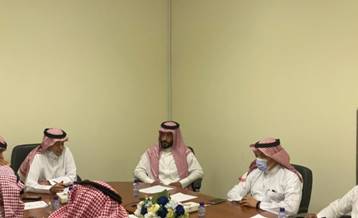
The General Administration of Strategic Planning launched the process of analyzing radiation and nuclear risks in the university environment in partnership with the various relevant university authorities, where a meeting was held under the chairmanship of His Excellency Mr. Muhammad bin Bajad Al-Mashqour, Director General of Strategic Planning, representatives of the College of Applied Medical Sciences, a representative of the Deanship of Scientific Research, a representative of the General Administration of Projects and Technical Affairs, and a representative of the General Administration of Occupational Health and Environment, and procedures for identifying sources of radiation and nuclear danger in the university environment were identified and clarified.
Mr. Muhammad Al-Mashqour stated that in cooperation with the various university bodies, we will reach - God willing - the completion of a detailed plan for the management of radiological and nuclear risks in order to achieve a university environment that supports excellence and creativity, and achieves the aspirations of the members of the university community, offering his thanks and appreciation to the university leaders for their follow-up and keenness on the university environment and their urgent endeavor to be a healthy, sound and free of all risks.
The University Signs a Memorandum of Understanding with King Abdullah City for Atomic and Renewable Energy
https://www.mu.edu.sa/ar/news/general/187326
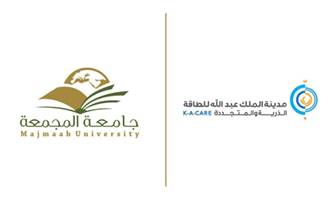
Within the framework of the university's efforts to enable qualitative partnerships with various community bodies, the university, represented by the President of the University, Prof. Dr. Saleh bin Abdullah Al-Mizil, signed a memorandum of understanding with King Abdullah City for Atomic and Renewable Energy represented by His Excellency the President of KACST, Dr. Khalid bin Saleh Al-Sultan, to exchange experiences in the field of energy applications, as the memorandum includes cooperation between the university and KACST in establishing a wind energy center at the university's site in the university city in Majmaah Governorate, within the framework of the university's initiative To support the applications of the United Nations Sustainable Development Goals 2030, which are led by the University's Social Responsibility Observatory.
On this occasion, the President of the University stated that this partnership comes within the framework of the university's policy in opening channels of communication with various community institutions in the country, in order to contribute to supporting development efforts regarding the scope of the university, pointing out that these efforts stem from the directions of the wise leadership in building development partnerships between various national institutions, which contributes to improving the results of projects and raising their efficiency, thanking His Excellency the President of King Abdullah City for Atomic Energy Dr. Khalid bin Saleh Al-Sultan renewed KACST's cooperation with the university in completing this memorandum, wishing His Excellency the best to the working team for completing and implementing the memorandum, whether from the university side or from the city's side.
Dr. Abdulaziz Al-Mutairi presents a qualitative study on the general awareness of electric vehicles in the Kingdom
https://www.mu.edu.sa/ar/news/general/187186
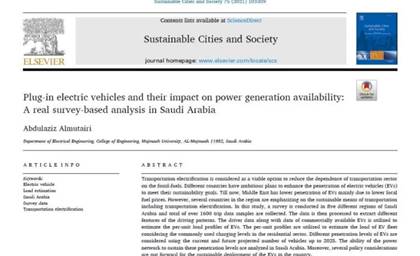
A faculty member at the College of Engineering at the University, Dr. Abdulaziz bin Dakhil Al-Mutairi, presented a scientific research published in a scientific journal with a high classification and impact factor on charging electric vehicles in the Kingdom and their impact on the reliability of the electrical network, in line with the remarkable developments adopted by the Government of the Kingdom of Saudi Arabia in the field of clean energy and environmental sustainability.
Dr. Al-Mutairi explained that the entry of electric vehicles is a promising option to reduce the dependence of the transport sector on fossil fuels and reduce environmental pollution, and added that many countries have plans to promote the use of electric vehicles to achieve sustainable development goals, including the Kingdom of Saudi Arabia through the Kingdom's Vision 2030, indicating that in this study, data was collected in five different regions in the Kingdom for more than 1600 trips, and The data to extract different features of the behavior patterns of vehicle drivers, as this data was used in addition to commercially available electric vehicle data in estimating the load profiles per unit of electric vehicles, and the study also determined the commonly used charging levels in the residential sector considering the current and future expected number of vehicles until 2025, adding that moreover, many considerations and recommendations were put forward for the sustainable spread of electric vehicles in the Kingdom.
The research is considered one of the few qualitative researches in the Kingdom and the Gulf region, which is concerned with providing a database for researchers and relevant authorities working on the infrastructure for charging electric vehicles.
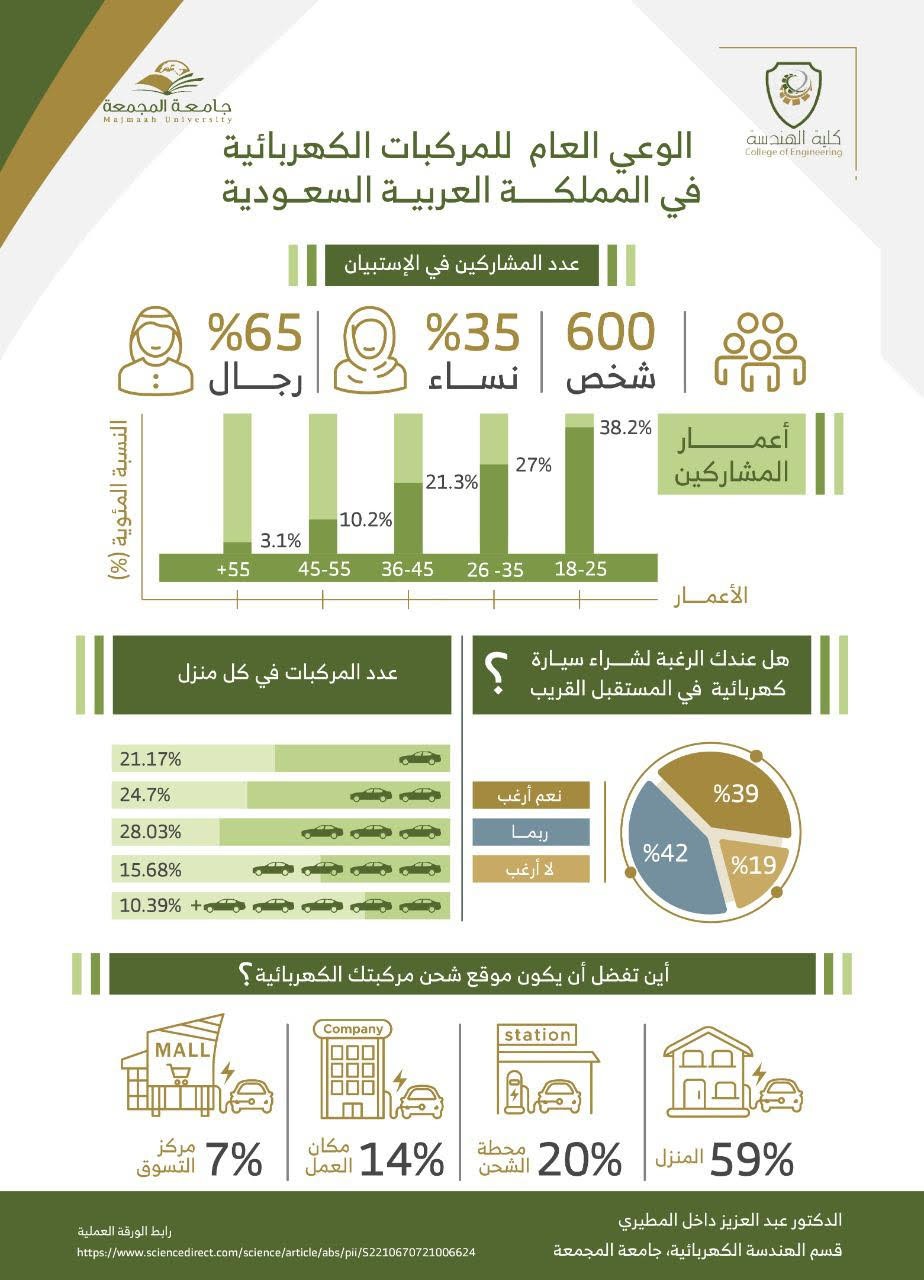
Energy Conservation Measurement Questionnaire
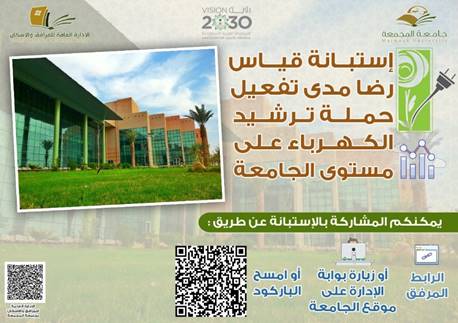
Based on the keenness of the General Administration of Utilities and Housing to measure the extent of activation of the electricity rationalization campaign at the university level, we are pleased to inform you of the questionnaire on the following link: A questionnaire to measure energy conservation, we hope for the participation of all faculty members, employees, male and female students, and we are happy with the proposals that will activate the campaign and develop work.
Workshop entitled "Energy Thieves"
The Student Activities Unit at the College of Sciences and Humanities in Ramah (Female Section) held a workshop entitled "Energy Thieves" presented by Dr. Duha Shehata on Monday, 24/6/1439 AH.
Workshop Themes:
1. The concept of energy.
2. Energy thieves from those around us.
3. Internal energy thieves (digestion - anxiety - stress).
4. How to increase our energy (including practical exercises).
5. What are the motives that provide us with energy.
The University Participates in Energy Efficiency
https://www.mu.edu.sa/ar/news/114581
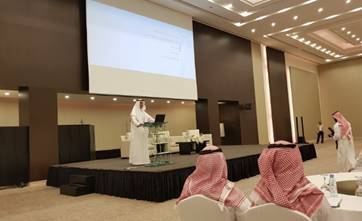
In the presence of His Royal Highness Prince Abdulaziz bin Salman bin Abdulaziz Al Saud, Minister of State for Energy Affairs, the university participated in the workshop organized by the Saudi Energy Efficiency Center, where the university was represented by Mr. Thamer bin Abdullah Al-Thumairi from the General Administration of University Relations and Media, and Eng. Musa bin Aoun Allah Al-Mutairi from the General Administration of Operation and Maintenance.
The workshop was on the mechanism of rationalizing electricity consumption in the government sector, and aims to clarify the standards necessary to raise the efficiency of electricity consumption in all existing government facilities and facilities and the mechanisms of their application, and to deliver the awareness messages issued by the center on rationalizing energy consumption to the employees of the entities.
The workshop included a full explanation of the mechanism of providing the center with data related to electricity consumption by the technical coordinator in each government agency, and a course in following up the preparation and implementation of preventive periodic maintenance programs for the most energy-consuming electrical appliances, and during the workshop the questions and inquiries of the attendees were answered.
On the awareness side, the specialists in the workshop gave a full explanation of the roles of the media coordinator in each entity, and the importance of coordinating with the center to prepare and implement programs to educate the employees of the entity about the need to rationalize electricity consumption in the workplace.
Scientific meeting at the Department of Physics entitled "Energy Policy in the Kingdom of Saudi Arabia to Achieve Renewable Energy Goals for 2030"
https://www.mu.edu.sa/ar/news/colleges/college-of-science-al-zulfi/195441
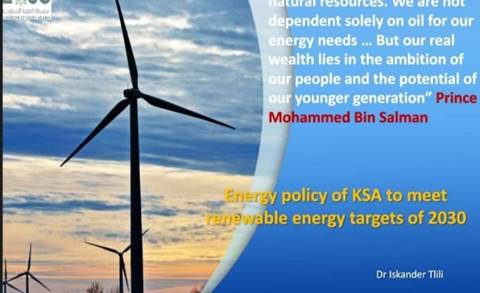
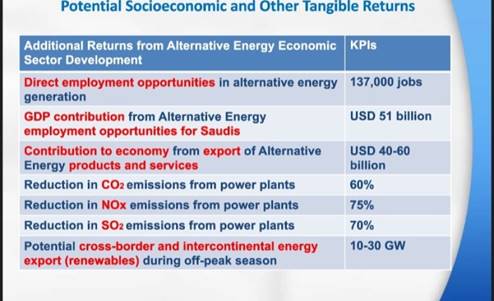
The Department of Physics held a scientific symposium entitled "Energy Policy in the Kingdom of Saudi Arabia to Achieve the Renewable Energy Goals for 2030" presented by Dr. Iskandar Tlili.
The atlas prepared by King Abdullah City for Atomic and Renewable Energy (K.A.CARE), especially the Solar Energy Sources Monitoring Network and the Wind Energy Sources Monitoring Network, were introduced.
The seminar was attended by faculty members, Master of Physics students, Bachelor of Physics students and Bachelor of Physics students in Renewable Energy and Environment
University participates in energy efficiency
In the presence of His Royal Highness Prince Abdulaziz bin Salman bin Abdulaziz Al Saud, Minister of State for Energy Affairs; the university participated in the workshop organized by the Saudi Energy Efficiency Center, where the university was represented by Professor Thamer bin Abdullah Al-Thamiri from the General Administration of University Relations and Media, and Engineer Musa bin Aoun Allah Al-Mutairi from the General Administration of Operation and Maintenance.
The workshop was about the mechanism of rationalizing electricity consumption in the government sector, and aimed to clarify the standards necessary to raise the efficiency of electricity consumption in all existing government facilities and establishments and the mechanisms for their implementation, and to deliver awareness messages issued by the center about rationalizing energy consumption to the employees of the agencies.
The workshop included a comprehensive explanation of the mechanism for providing the center with data related to electricity consumption by the technical coordinator in each government agency, and a course in following up on the preparation and implementation of programs for periodic preventive maintenance of electrical devices that consume the most energy. During the workshop, questions and inquiries from the attendees were answered.
On the awareness side, the specialists in the workshop provided a comprehensive explanation of the roles of the media coordinator in each department, and the importance of coordination with the center to prepare and implement programs to educate the department’s employees about the need to rationalize electricity consumption in workplaces.



